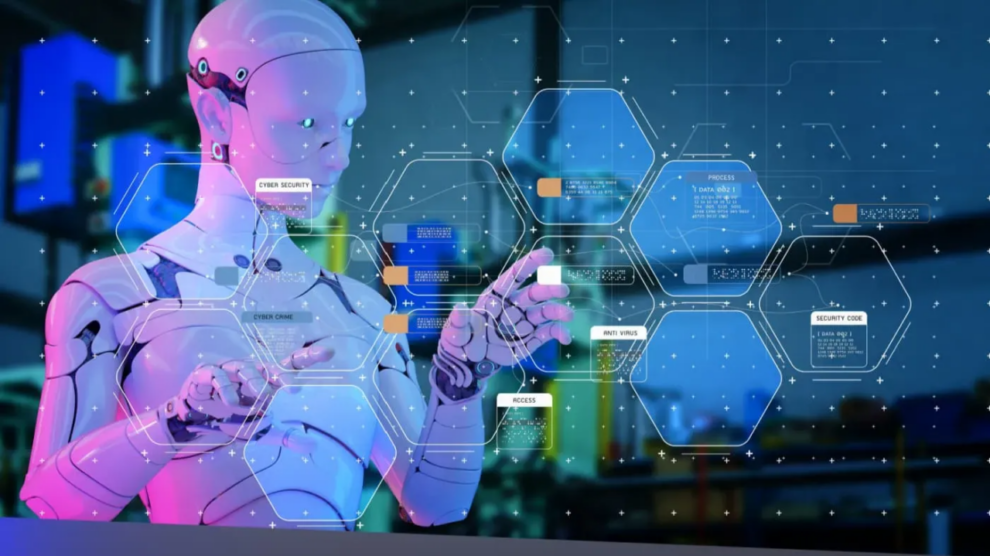Could the once rapid-fire pace of groundbreaking AI research from DeepMind be shifting gears? For years, the Google-owned lab has captivated the world with its stunning achievements, from conquering Go to predicting protein structures. But lately, some observers have noted a subtle yet significant change: a perceived deceleration in the public release of its latest findings. Is this merely a lull, or does it signal a deliberate strategic pivot in the fiercely competitive landscape of artificial intelligence?
DeepMind, a name synonymous with AI breakthroughs, has historically operated with a high degree of transparency, frequently publishing its research in prestigious scientific journals and sharing its advancements with the wider AI community. This open approach has fostered collaboration and accelerated progress across the field. However, the current environment is markedly different. The AI race has intensified, with major tech companies and well-funded startups vying for dominance. The stakes are incredibly high, with potential applications ranging from revolutionizing healthcare to reshaping entire industries.
In this context, the value of intellectual property and maintaining a competitive advantage has become paramount. While DeepMind remains committed to its mission of solving intelligence to advance science and benefit humanity, the timing and method of disseminating its discoveries may be undergoing a strategic reassessment. Several factors could be contributing to this apparent shift.
One potential reason is the increasing complexity and potential commercial value of DeepMind’s research. Early breakthroughs, while significant, often laid the groundwork for more intricate and potentially lucrative applications. As DeepMind delves deeper into areas like artificial general intelligence (AGI) and more sophisticated real-world problem-solving, the incentive to guard its most cutting-edge advancements before they can be fully leveraged by competitors may be growing.
Consider the case of AlphaFold, DeepMind’s AI system that accurately predicts the 3D structure of proteins. This was a monumental achievement with profound implications for drug discovery and biological research. While DeepMind did eventually open-source AlphaFold’s code and database, the initial development and refinement likely involved significant resources and expertise. In a hyper-competitive market, holding back such a breakthrough, even for a limited time, could provide a crucial edge.
Another contributing factor could be the evolving nature of AI development itself. The field is moving beyond isolated research projects towards building more integrated and comprehensive AI systems. These systems often involve a complex interplay of different algorithms, datasets, and engineering expertise. Releasing individual research papers might not fully capture the value and sophistication of these larger, interconnected projects. Instead, DeepMind might be prioritizing the development and deployment of these holistic AI solutions before publicly disclosing the underlying research in detail.
Furthermore, the intense scrutiny and public attention surrounding AI advancements could also play a role. Every major announcement from DeepMind is met with both excitement and intense analysis. Premature or incomplete disclosures could lead to misinterpretations, unrealistic expectations, or even the unintended sharing of sensitive information. A more cautious approach to research releases could be a way to manage this complex information flow and ensure that findings are presented in a comprehensive and responsible manner.
It’s also worth noting the increasing competition from other AI labs. Companies like OpenAI, Anthropic, and various university research groups are making significant strides in different areas of AI. In this dynamic environment, maintaining a technological lead requires not only groundbreaking research but also a strategic approach to how and when that research is shared. Delaying the public release of certain findings could give DeepMind valuable time to solidify its position and translate its advancements into tangible products or services.
Of course, it’s crucial to avoid drawing definitive conclusions based solely on anecdotal observations. DeepMind continues to publish research and actively participate in the AI community. However, the subtle shift in the perceived pace of public disclosures warrants attention and raises questions about the evolving strategies within the AI race.
Some experts suggest that this potential slowdown could also reflect a greater emphasis on real-world applications and commercialization. DeepMind, while initially focused on fundamental research, is increasingly looking to translate its breakthroughs into practical solutions that can benefit Google and its users. This shift in focus might necessitate a more measured approach to research releases, prioritizing the deployment and refinement of AI products over the immediate dissemination of every research finding.
For instance, DeepMind’s work on optimizing Google’s data centers and improving the efficiency of its products demonstrates a move towards applied AI. These types of projects often involve proprietary technologies and strategic advantages that companies are naturally hesitant to reveal prematurely.
Ultimately, the precise reasons behind any perceived change in DeepMind’s research release strategy remain speculative. However, the intense competition in the AI field, the increasing complexity and commercial value of AI research, and the evolving focus on real-world applications all suggest that a more strategic and potentially less frequent approach to public disclosures could be a deliberate move to maintain a crucial competitive edge.
Whether this shift will ultimately benefit or hinder the broader progress of AI remains to be seen. While some might lament a potential decrease in the open sharing of knowledge, others might argue that it’s a necessary adaptation in a high-stakes technological race. One thing is certain: the world will be watching closely to see what groundbreaking innovations DeepMind unveils next, and how its approach to sharing those innovations continues to evolve.









Add Comment